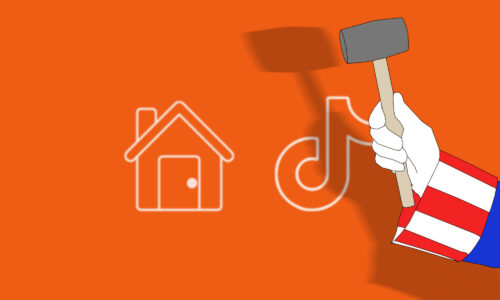Trump’s WeChat and TikTok ban starts Sunday
The Trump administration is poised to implement a Chinese Great Firewall–style block on WeChat starting on September 20, with downloads of the app barred and network interruptions ordered. Downloads of TikTok will also be blocked, but the company has until November 12 to strike a deal with Oracle before also suffering technical freezes.

UPDATE: TikTok and WeChat both in limbo in U.S. after Trump ‘blessing’ and court ruling
The U.S. Commerce Department has moved on Donald Trump’s executive orders to ban TikTok and WeChat:
From Sunday, September 20, downloads of the two apps from U.S. app stores will be banned, the Commerce Department announced, and there will be a gradual freeze on any servers or technical services based in the U.S. that help make WeChat and TikTok operate smoothly for U.S. users.
These technical interruptions — including for “internet hosting services,” “content delivery network services,” and “internet transit or peering services” — will begin on September 20 for WeChat.
“I would expect WeChat to be slower than it already is in the U.S. starting Sunday,” Graham Webster, editor-in-chief of the Stanford–New America DigiChina Project, told The China Project.
TikTok, however, will get a temporary reprieve from network interruptions until November 12, as the White House is still attempting to strong-arm its owner, ByteDance, into some type of deal with Oracle, a Trump-friendly Silicon Valley company.
View the full Commerce Department orders here for WeChat and here for TikTok. The ban on downloads of both apps take place “after 11:59 p.m. Sunday,” per the Wall Street Journal.
The bans do not apply outside the U.S.
Can you use WeChat and TikTok in the U.S. next week?
If you have either app downloaded on your phone before September 20, it should continue to work for most purposes for at least the immediate future. The exchange of “personal or business information” on both the apps is exempted from the orders, and the action of the orders is directed at companies, not end users. Even “the transferring and receiving of funds” between individual WeChat users is specifically exempted.
However, business transactions and some other functions could be immediately impacted on WeChat. Jimmy Robinson, director of PingPong Digital, told The China Project: “There could be complications for companies that use certain CMS systems that link directly to WeChat, hootsuite style services that cache the data within the U.S. For them, they will have to revisit how they plan, schedule and post content.”
To continue using WeChat and TikTok, people in the U.S. will need to do one of the following, Webster explained:
- Avoid updating the operating system on their phone, which could break the function of WeChat or TikTok, since their updates are no longer available through app stores. One way to do this would be to have a second phone for the sole purpose of using WeChat or TikTok.
- “Sideload” on Android — opening an app that is manually installed, rather than downloaded through an official app store — or jailbreak their iPhone, which is “an incredibly bad idea in terms of security.”
- Use a VPN, just like millions of Chinese people do to access Facebook, YouTube, Instagram, Twitter, or hundreds of other websites that the Chinese government has blocked — in a way that is much more thorough, but not unlike what the Trump administration is poised to do to WeChat.
Alex Stamos, a researcher at the Stanford Internet Observatory, tweeted that one of “the immediate impacts will be Chinese Americans trading their iPhones for Androids and side-loading a WeChat client that calls into non-U.S. infrastructure. Losing contact with family during a global crisis is a big motivator. This isn’t a security upgrade.”
Everything could still change
There is an active legal battle against the initial executive order on WeChat that led to this Commerce Department order, and the TikTok-Oracle-Trump administration negotiations continue as chaotically as ever.
Today, a California federal judge ruled in the WeChat case “that an existing motion seeking a preliminary injunction was moot” because of the new Commerce Department order that clarified what “transactions” would be covered, but the judge “left the door open for an emergency hearing on the matter,” the Wall Street Journal reports. TikTok filed a similar lawsuit last month, and other challenges to the Commerce Department orders could come up.
At the same time, more action against Tencent, the owner of WeChat, could be coming up. “The Committee on Foreign Investment in the U.S., which is chaired by the Treasury Department, has sent letters to companies, including Epic Games Inc., Riot Games and others, to inquire about their security protocols in handling Americans’ personal data,” Bloomberg reports. Tencent has a 40% stake in Epic Games and owns Riot Games.
Reactions in China
While the ban won’t affect WeChat users based outside the U.S., Chinese internet users were quick to react, with many sharing their derision and astonishment over the news.
- “It’s time for American people to get their hands on VPNs,” a Weibo user wrote (in Chinese) — Chinese internet users who want to access foreign websites are of course familiar with virtual private networks that allow one to evade local internet blocks.
- Seeing WeChat as the latest casualty in Trump’s escalating tech war with China, some people cursed him as an “unhinged maniac,” a “lawless bully,” and a “shameless loudmouth,” among many other negative labels. “It seems like he is completely out of his mind and will be like this until November 3,” a Douban user commented (in Chinese).
- Some Chinese nationalists called for boycotts of American companies like Apple as a form of retaliation. A Weibo user wrote, “China should get tougher on the U.S. It’s a no-brainer that we should kill Apple in response.”








